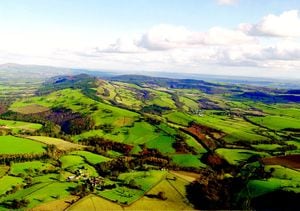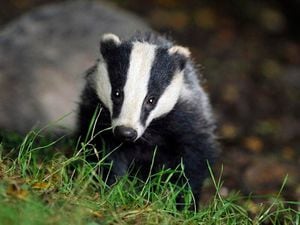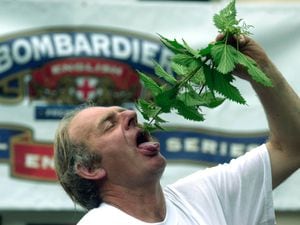Ow bist? Do you know your Shropshire slang?
Quite frankly, there are some Shropshire Star readers speaking a language of their own.

And long may they continue to do so, keeping alive some of the special words, dialects and pronunciations which even today have passed down the generations despite the influence of mass media and the tendency to standardisation.
The view of experts is that there is no single Shropshire dialect, which is intuitively true when you compare places like Oswestry, with the cross-border influences, with the old industrial heartland of east Shropshire, where there are many linguistic echoes from the Black Country, and beautiful Ludlow in the Marches.
So the traditional Dawley greeting of "ow bist, jockey?" would perhaps sit better on the streets of Tipton than in Shrewsbury High Street.
And a book written by the late Terry Lowe about his native village was called "A Ketley Mon." Of course the use of "mon" for man is not a substitution used only in Ketley, underlining that there are various uses of language in parts of Shropshire which are familiar in other quite distant parts, and indeed in other parts of the country.
Nevertheless, we wonder whether "ganzie," an old Clee Hill area term for waistcoat, or "ewkin," meaning valley dweller, would be understood even down in Ludlow (or even, these days, in Clee Hill itself).
Now as part of its 90th birthday celebrations the Oxford English Dictionary has embarked on a nationwide quest to bring to the fore examples of the linguistic diversity of the nation, which sees words used in some parts of the country baffling folk elsewhere who have never heard of them.
GLOSSARY
All Around The Wrekin - A circuitous or meandering route or method to get to a particular place, thing, or conversational point.
Bostin' - Great, wonderful, fantastic.
I'm gooin' - I'm going.
Dunno - Don't know.
Durst? - Do you?
Clemmed - Hungry.
Pither - Worry, complain, although an alternative translation is to "mess about."
Towd mon & umman - The old man and woman
Jed - Devoid of life, deceased.
Nurker - Somebody who is one of the lads.
Ow bist? - How are you?
Wench - Girl, woman (as in "owd wench").
Shammocks - Legs.
Mucker - Mate, pal.
Shoosby - Shrewsbury.
Kate Shepherd, speaking for the dictionary, said: "If you’ve ever had a ride on the back or the handlebars of someone else’s bike, is it a backie or a croggie? Would you describe a good time as barry, splann, champion, gas, or a gurt lush? Do you refer to the love of your life as your doy, hen, pet, babber, or hinny?
"This month, the Oxford English Dictionary marks its 90th birthday and as part of our celebrations we are launching four new word appeals and want to, well, spread the word. Our first appeal is called ‘Words Where You Are’.
"All of us can probably recall a time when a word we’ve known and been using for years turns out to be baffling to people from other parts of the country.
"While many such words are common in speech, some are rarely written down and so can easily escape the attention of dictionary editors. The OED continues its mission to create the most comprehensive, accurate, and up to date picture of how and where these words are used, and we need people's help.
"We want to hear about words and expressions that are distinctive to where your readers live or where they are from. They can send their words to our website or join the conversation on Twitter at #wordswhereyouare."
In Shropshire, there can be a debate about where the line is drawn between pronouncing words in a special way, and creating new words, for example in a phrase remembered by a former pupil at school at Ashford, near Ludlow: "If I truds on yor fut ya munna bawl."
And then there's the oft-quoted: “You munna say dunna, it dinna sound right; You dinna say binna, it tinna polite.”





